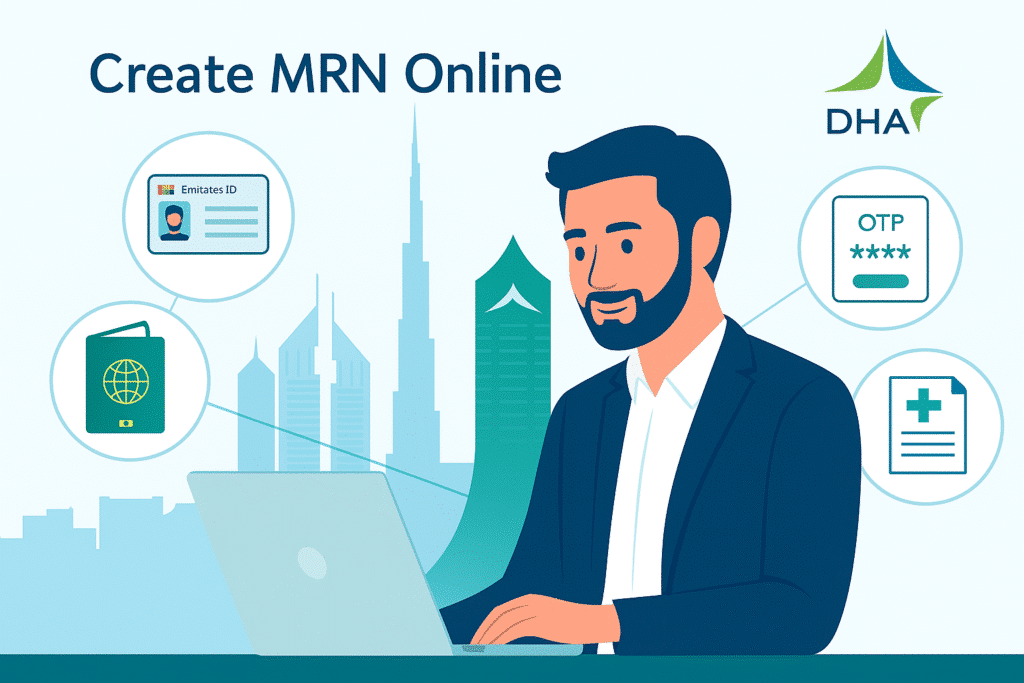
By 2025, the COVID-19 induced restrictions on people will have become even more relaxed, and Abu Dhabi will remain an open destination. Al Hargees emirate was able to circumvent the pandemic and is currently open again to tourism. It may differ according to stewardship, but it is advisable to adhere to travel stewardship and health regulations by use of the latest travel stewardship during your visit. Abu Dhabi is firm on its intentions of safeguarding the interests and comfort of all the tourists, besides providing them with a superior and satisfying experience.
In this blog, I will guide you through ” New Quarantine Rules in Abu Dhabi “. I will also give a summary of the Al Hosn app, the PCR tests, and certain scenarios of vaccinated and non-vaccinated passengers.
General Guidelines

No Mandatory Quarantine for Most Travelers
The key shift in the domain of COVID-19 response in the city of Abu Dhabi is the alteration of the compulsory quarantine related to traveling. It does not matter whether you are coming on business, going on holiday, or visiting your relatives, you are not likely to encounter the necessity to undergo self-isolation when you arrive.
Note that despite the fact that the compulsory quarantine is not applied to the majority of cases nowadays, it might still be imposed by the authorities in Abu Dhabi in some cases, e.g. when you have been exposed to COVID-19 or have traveled to a high-risk state.
Key Points
- No required quarantine in most travelers.
- Traffic circumstances when it may still be advised to go in quarantine (high-risk countries, close contact with a positive case).
Al Hosn App: Your Digital Health Passport
When you want to visit certain facilities or locations in the UAE, you will be required to download and register on the Al Hosn app, which can be used as a digital health passport within the country. This application monitors your vaccination status and the COVID-19 exposure and the resulted PCR test.

Registration also allows your presentation of the status of green (which refers to full vaccination and/or recent negative PCR tests), which is necessary to attend many public sites, including malls, restaurants, and tourist attractions.
Key Points
- Al Hosn app is a requirement for all travellers in the state of Abu Dhabi.
- It reflects close contact warning, PCR test results, and vaccination status.
- To be able to access the services and use the public spaces, one is required to achieve a green status.
PCR Tests: When They Are Required
Although most quarantine measures have been lifted in Abu Dhabi, you might still be asked to go through PCR testing, either at the time of entry or in the course of going to the administration, again depending on the source country. To give an example, travelers leaving the country with a high number of COVID-19 prevalence or its variants may be required to take tests to ascertain that they are not infected.
In most of scenarios, the PCR test would not be necessary upon the arrival of a fully vaccinated traveller. However, the instructions may change, depending upon your vaccination status or country of origin or any other changes to the public health protocols in Abu Dhabi.
Key Points
- This time, CDC tests may still be needed by those traveling to and from high-risk countries.
- Testing needs may differ depending on the character of vaccination and recent travel.
- We recommend you check the latest advice before travelling.
Specific Scenarios for Travelers
Vaccinated Travelers: No Quarantine and Simplified Protocols
People who are fully vaccinated would breathe easy and have a smooth entry into Abu Dhabi. The UAE accommodates a wide scope of the COVID-19 vaccination, and there is no need to stay in quarantine in case the passenger can prove that he or she is vaccinated.
The vaccinated travelers may have to provide a PCR test at the airport, but that will depend on the regulations that will be during the time of travel and the country of departure. This will usually not involve quarantine following the test unless it returns positive.
Key Points for Vaccinated Travelers
- There is no quarantine required for fully vaccinated travelers.
- A legit vaccination certificate will be required
- Testing with PCR is not necessary for all vaccinated people.
Non-Vaccinated Travelers: Testing and Possible Quarantine
The rules are somewhat different in the case of a non-vaccinated traveller. You will probably be required to take a PCR test upon your arrival as well as follow a set of guidelines, some of which may include undergoing specific tests during your stay or a brief quarantine period in accordance with the updated pubic health plan of Abu Dhabi
It is also possible that the quarantine requirement or PCR tests might also be based on the country of origin, as well as the reality in their country with COVID-19. It is also useful to stay abreast and certain about the expectations you have to fulfill before you leave.
Key Points for Non-Vaccinated Travelers
- CR testing can be carried out once you have arrived
- They can be put into quarantine, particularly in case of coming to high-risk countries.
- Testing can be required regularly during your stay in Abu Dhabi.
Close Contact with a Positive COVID-19 Case
Mandatory self-quarantine You will be strongly advised to self-quarantine in your residence in case you come into close contact with someone confirmed with COVID-19 when you are in Abu Dhabi. In the case of those, you will have to undergo a PCR test and adhere to the health protocols provided by the Abu Dhabi Emergency, Crisis, and Disasters Committee.
The duration spent in the quarantine itself will bear on the outcomes and the new recommendation by the medical authorities. Moreover, you quarantine status will be traced via the Al Hosn app and will help you track your results on PCRs and the quarantine period.
Key Points for Close Contacts
- Close contacts of COVID-19-infected patients are likely to undergo compulsory isolation.
- In such instances, a PCR test is usually required.
- The duration in quarantine can differ according to testing and health instructions.
the Al Hosn App: Your Essential Travel Tool
How to Download and Register on the Al Hosn App
The Al Hosn application can be downloaded for both Android and iOS. In order to use the app, one should have an account: it is necessary to enter your Emirates ID (for residents) or your passport number (for visitors) and your phone number. After registration, you can leave the documents of your vaccinations and PCR tests.
As a tourist, put in the mandatory information in the app before your visit to avoid inconveniences at the checkpoints or in the open or presentable centers.

Key Points
- It could be used on Android and iOS.
- Fields of registration are subject to an Emirates ID or a passport number.
- Before travelling to Abu Dhabi, tourists are allowed to upload their vaccination and test records.
How the Al Hosn App Works
Once registered, the application indicates your health level in green, gray, and red. You are considered as biosecure with a green color when you have been vaccinated or you have received a negative coronavirus test in the recent past. The gray status will imply that you may be called upon to take a PCR test, and the red will show that you have been infected together with/or exposed to an infected person.
They need to be in good health status to get access to the malls, restaurants, hotels, tourist attractions and any open place to the masses.
Key Points
- Health status is colored in three options: green, gray, or red.
- Individuals who want to enter public areas in Abu Dhabi are required to have the Green status.
- The application monitors the vaccination status, recent testing, and positive case exposure.
Read Also: 15 Best Free Hospitals in Dubai for Tourists
PCR Tests in Abu Dhabi: A Key Health Measure

When and Where to Take a PCR Test
Although the PCR tests are not a requirement for all travelers, they may need PCR tests based on their travel conditions. The availability of these tests is easy at the Abu Dhabi airport clinics and hospitals.
In case you should receive a PCR test on arrival, the procedure is fast and most effective. The outcomes can be obtained through the Al Hosn app within 24 to 48 hours, so you can move forward with your stay.
Key Points
- In some travelers, PCR tests might be necessary.
- Testing is possible at airports, clinics, and hospitals.
- The results will normally be revealed between 24 hours to 48 hours.
Cost of PCR Testing in Abu Dhabi
Abu Dhabi CRTs cost a reasonable amount and are priced anywhere between AED 40- AED 150, depending on the laboratory and the urgency of the results. The cost of the same tests is higher if made in a privately owned clinic or to get the results faster, so make sure of the prices in advance.
Key Points
- The prices of PCR tests are AED 40-150.
- Prices also vary as per urgency and testing facility.
- See what test costs are before booking an appointment
Travelers from High-Risk Countries: Additional Precautions

A lot of rules have been removed in Abu Dhabi; however, visitors who are returning to the country may be subject to more rigid policies depending on what they came in contact with. This may involve testing on arrival, which is required, and even quarantine.
In case you are coming in after spending some time in a high-risk nation, make sure that you have checked the latest regulations, since regulations are dynamic and change with the current global events.
Key Points
- Visitors of high-risk countries might be subjected to more testing and incarceration.
- Get the current advice before traveling
- There are extra measures applied to those travels that come to a high-prevalence region.
Read Also: What is EDE Scanner? Everything You Need To Know
Final Words
Business Travel: Opening the doors to business travel, rules on quarantine have changed significantly, making the experience of travelling to Abu Dhabi more pleasant and with fewer restrictions of any nature. However, in order to make the experience seamless and stay safe, it is necessary to stay informed about the latest health measures and act by the Al Hosn application and the PCR test and quarantine regimen.

